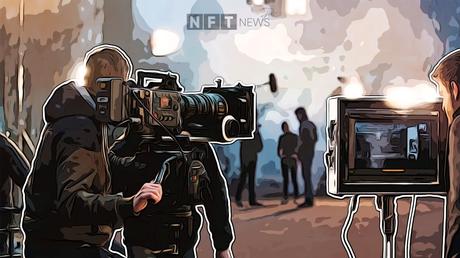
It’s no secret that Deadpool has done well. It made $783,1 million. Marvel and Fox Studios were unsure about making the film. Because test footage got out by accident, studio bosses gave the film the green light.
We might never know if the leak was a mistake or not, but it showed how people can affect how movies are made. Web3 and the technologies that make it work will push the limits and make Film3.
The world’s film business is mostly run by the top production companies. These production companies make it easy to find actors, get money, and get the movie to people. Smaller movies, independent directors, and new actors have a hard time making it. Outcome? Audiences only see the movies that studios want them to see, which means that many great screenplays, ideas, actors, and directors aren’t seen.
Web3-powered filmmaking wants to change the way power works and give films and creators new options.
Internet has changed how movies are made
How could Web3 change the way movies are made? As the internet has grown, it has changed the way people get and use information.
From 1990 to the early 2000s, when Web1 was around, people could post things and wait for others to read them. In Film1, people made movies and hoped that people would watch them. The schedule, date, and time were set by the producers, and anyone who tuned in could watch.
Web2 made it easier for users to interact with content. Film2 was when studios and filmmakers worked together to make and sell movies. Streaming services let people watch movies and other content whenever and wherever they wanted. Film2 is run by big studios, just like Web2.
With recent improvements to blockchain technology, Web3 will be more secure, decentralized, and not based on trust. Most Web3 users are in charge of platforms and activities on the internet. Film3 is a new way of making movies in which people, not companies, control the entertainment business.
Film3’s power dynamics
Film3 was made because people should be in charge of the entertainment industry. Studios pick scripts, get money for movies, and send them to theaters. People judge this information.
People can crowdfund their favorite scripts and cast choices in Film3. The funding and distribution for the studio will come later. This bottom-up method gives filmmakers great material, real talent, and the freedom to be creative.
This may seem far-fetched, but blockchain and its byproducts make it possible. Trevor Hawkins, who is known for his book Lotawana, started an NFT collection to raise money for his new book. There are $1,000 NFTs in the set. They have a stake in the film’s revenues.
Film3 is being built. From getting ideas to making the movie to getting money to show it, everything about how movies are usually made will change. Film finance will change with decentralized production companies leveraging cryptocurrency and NFTs. Middlemen and upfront investments will be rare. People will do DAOs that have to do with movies. Virtual theaters and metaverse theaters will be a big part of how Film3 is sold, giving people new ways to watch movies. Social tokens will help aspiring musicians and filmmakers build their brands and networks in the industry. This is all just the start for Film3. This new era of movies will give creators, producers, distributors, and artists new chances.
Web3-friendly
In the last 100 years, movies went from being shown on a single screen to being shown on DVDs to being shown online. The biggest change is from Film2 to Film3. It will change everything about making movies.
Change is possible in the movie business. Rich people in Hollywood have tried out NFTs and cryptocurrencies, and now they’re getting ready for the metaverse. If everything goes as planned, movies will be made and used in a new way.
Leave this field empty if you're human: